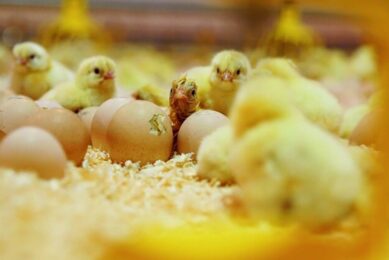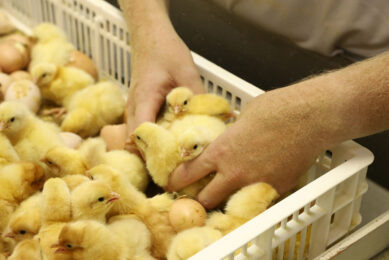Canada: Egg antibiotics creating resistance
Antibiotics such as cephalosporin used in chicken hatcheries in Canada are causing human resistance to the medicines, according to a report in the Canadian Medical Association Journal.
Surveillance information from the Canadian Integrated Program for Antimicrobial Resistance (CIPARS), which is funded by the public health agency, “strongly indicates that cephalosporin resistance in humans is moving in lockstep with use of the drug in poultry production,” the CMAJ explains.
In 2005, chicken bought at Ontario and Quebec supermarkets had high levels of cephalosporin-resistant bacteria. Meanwhile, widespread use of ceftiofur, which is a type of cephalosporin, was found at Quebec chicken hatcheries. When farmers stopped using ceftiofur briefly due to the evidence drawn by CIPARS, there was a massive drop in cephalosporin resistance in salmonella samples taken from humans and retail poultry, says the CMAJ.
More than a couple of years have passed, and researchers are once again seeing an increase in resistance. The latest data for Ontario, released in March, shows that there was a spike in ceftiofur resistance in humans and in chickens. Between 2007 and 2008 there was a jump in bacteria resistance in retail chicken in Quebec, Saskatchewan and British Columbia—from 29% to 46% in the latter province, which prompted a B.C. disease specialist to call the rise “alarming”.
Cephalosporin is not approved for use in chickens or eggs, but it is often “robotically injected” into eggs at chicken hatcheries as a preventative measure to stave off infections, reports the CMAJ. This occurs on an off- or extra-label basis, which means that the drug is being used for unapproved reasons. Health Canada has issued a safety warning label about off-label use of cephalosporin, but critics say that is not enough and want tighter restrictions or a ban on the sale of these antibiotics for food animal production.
Source: Macleans.ca
Join 31,000+ subscribers
Subscribe to our newsletter to stay updated about all the need-to-know content in the poultry sector, three times a week. Beheer
Beheer








 WP Admin
WP Admin  Bewerk bericht
Bewerk bericht